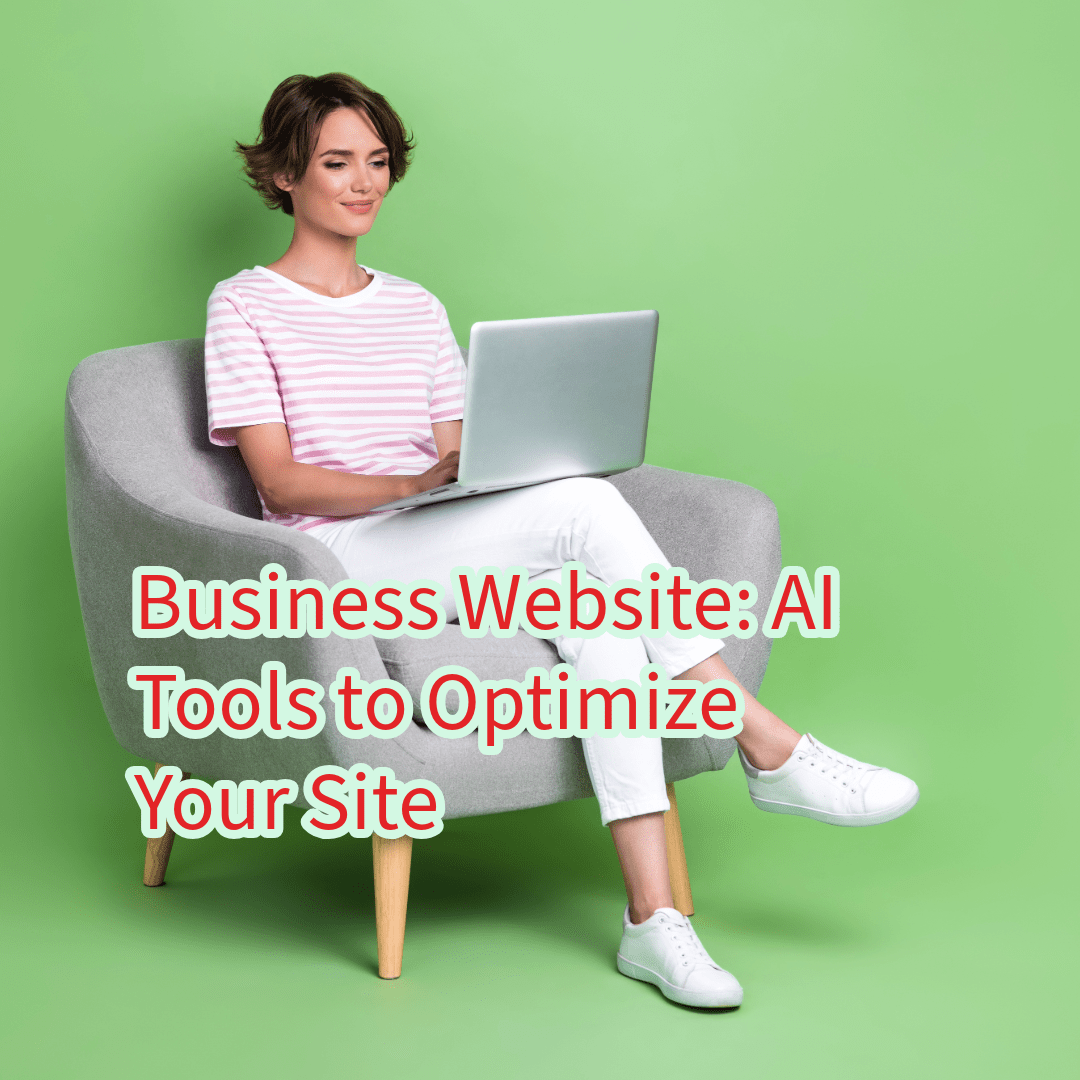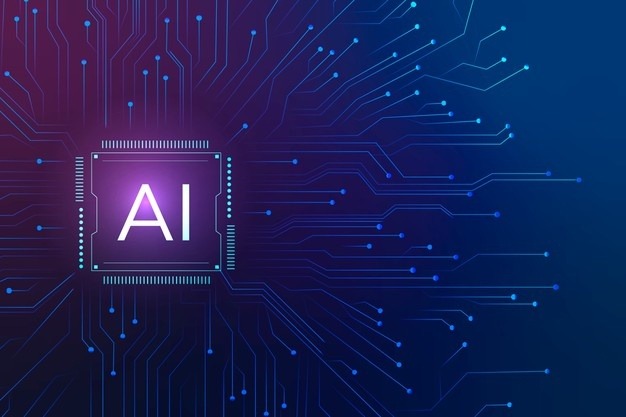
A business website is more than a virtual storefront—it’s a living ecosystem that must adapt to user behaviors, search engine algorithms, and emerging technologies.
Artificial Intelligence (AI) is a game-changer for web optimization, it can analyze datasets, automate repetitive tasks, and deliver hyper-personalized experiences.
Whether launching a brand-new website or looking to refine an existing one, integrating AI tools can improve your site’s search engine visibility, user engagement, conversion rates, and performance.
Here are some AI tools to optimize successfully your business website.
Business Website: AI Tools to Optimize Your Site

- AI-powered SEO and Content Creation
1.1 Automated Keyword Research
Effective Search Engine Optimization (SEO) begins with understanding which keywords your target audience uses.
AI-powered platforms like Semrush, Ahrefs, and Moz Pro leverage machine learning to scan billions of search results, identify long-tail opportunities, and estimate keyword difficulty more accurately than traditional methods.
These tools can suggest semantically related terms, niche phrases, and trending topics, helping you craft a content strategy that aligns with user intent and search engine criteria.

1.2 AI-Generated Content and Optimization
Producing high-quality, SEO-optimized content can be time-consuming. Tools such as Jasper, Writesonic, and Copy.ai employ natural language generation (NLG) to draft blog posts, landing pages, product descriptions, and social media copy.
Platforms like Surfer SEO, Frase, and MarketMuse analyze top-ranking pages to recommend optimal word counts, heading structures, and keyword placements.
By merging AI content generation with on-page SEO suggestions, businesses can reduce time-to-publish and ensure that new material is engaging and search-friendly.
1.3 Automated Content Audits
AI-driven audit tools such as Clearscope and ContentKing monitor on-site content for outdated information, broken links, thin pages, and duplicate titles or meta descriptions.
Real-time alerts allow site owners to update or consolidate content, ensuring the each page maximizes its SEO potential.

- Personalization and Enhanced User Experience
2.1 Dynamic Content Personalization
Modern consumers expect websites to adapt to their preferences. AI engines like Dynamic Yield, Monetate, and Optimizely Profile gather behavioral data, such as browsing history, geolocation, and past purchases, to deliver customized product recommendations, tailored banners, and calls to action.
Serving the right offer to the right visitor, these AI tools can boost engagement and sales.
2.2 Adaptive User Interfaces
AI-powered design platforms like The Grid and Adobe Sensei can adjust site layouts, typography, and color schemes in real time based on user interactions and device characteristics.

Instead of relying on static templates, these systems learn which design elements drive clicks, scroll depth, and form completions, automatically refining page elements for peak performance.
2.3 Voice Search and Conversational Interfaces
With the rise of voice-enabled devices, optimizing for conversational queries is crucial. Tools like Voiceflow and Dialogflow help businesses design natural-language voice experiences and chatbots that guide users through product discovery, appointment scheduling, or troubleshooting.
Integrating these AI tools on your site can help cater to voice search users and enhance accessibility for those who prefer spoken interactions.
- Performance and Technical Optimization
3.1 AI-Driven Image and Media Optimization

Large, uncompressed media files can cripple page load times, a critical factor for user satisfaction and search ranking. AI tools like Cloudinary, Kraken.io, and ImageKit automatically compress, resize, and convert images into modern formats (e.g., WebP, AVIF) without sacrificing visual fidelity.
Some services use machine learning to decide the optimal compression level per image type, ensuring quality across devices and network conditions.
3.2 Smart Caching and Content Delivery
Content Delivery Networks (CDNs) powered by AI, such as Fastly and Akamai, dynamically adjust caching rules based on traffic patterns, geographic demand, and server load.
These platforms predict spikes in user requests, like during marketing campaigns or product launches, and pre-warm caches in target regions, ensuring consistent page load speeds worldwide.
AI-facilitated edge computing can execute light scripts directly at network nodes, reducing server round trips and accelerating performance.

3.3 Automated Code Analysis and Optimization
Maintaining clean, efficient code is essential for long-term site health. Solutions like DeepCode and SonarQube use machine learning to scan JavaScript, CSS, and backend code, flagging performance bottlenecks, potential security vulnerabilities, and deprecated API usage.
By integrating these tools you can enforce code quality standards and detect regressions before they reach production.
- Data-Driven Analytics and A/B Testing
4.1 Predictive Analytics

Understanding user intent can transform how to structure your site. AI platforms such as Google Analytics 4 with its machine learning capabilities, Mixpanel, and Amplitude provide predictive metrics (e.g., purchase probability, churn likelihood) to help you prioritize high-impact visitors and tailor your marketing efforts.
These insights can help create engagement strategies.
4.2 Automated A/B and Multivariate Testing
Traditional A/B testing can be slow. AI-powered testing suites like Optimizely, VWO, and Kameleoon employ multivariate algorithms to accelerate experiment setup, automatically determine sample sizes, and adapt traffic allocation toward winning variants in real-time.
This dynamic approach shortens test durations and uncovers complex interactions between page elements that manual experimentation might miss.

4.3 Behavioral Heatmaps and Session Replays
Tools like Hotjar, Crazy Egg, and FullStory leverage AI to generate heatmaps of clicks, scrolls, and mouse movements, highlighting which page sections capture attention or induce friction.
Combined with session replay features, these platforms use pattern-recognition algorithms to flag frustrating behaviors (e.g., rage clicks, form abandonment) and surface actionable insights, enabling rapid UX improvements.
- Intelligent Customer Support and Engagement
5.1 AI-Powered Chatbots

Chatbot platforms like Intercom, Drift, and Ada harness natural language understanding (NLU) to handle routine inquiries, schedule appointments, and process simple transactions.
By deflecting common questions—such as order status, pricing details, and return policies—these bots reduce human work and deliver 24/7 assistance without sacrificing accuracy.
5.2 Sentiment Analysis and Ticket Routing
When human intervention is necessary, AI can optimize your support workflows. Solutions like Zendesk’s Answer Bot and Freshdesk incorporate sentiment analysis to prioritize negative or urgent tickets.
Automated routing algorithms can help resolve issues. This combination of triage and emotion recognition helps maintain high customer satisfaction and accelerates resolution times.

5.3 Knowledge Base Optimization
A well-structured knowledge base empowers self-service and reduces support costs. AI tools such as Guru and Document360 use machine learning to suggest new articles based on chat transcripts and support tickets, identify gaps in documentation, and recommend frequent updates.
As your AI assistant ingests more interactions, your knowledge base becomes comprehensive and user-centric.
Implementation Tips
Audit Current Capabilities
Begin by mapping your existing infrastructure, content, and user workflows. Identify priority areas—such as slow-loading pages, underperforming content clusters, or high-volume support queries.

Select the Right Tools
Balance features, ease of integration, and cost. Many AI platforms offer modular pricing, so you can start small (e.g., content optimization only) and expand to full personalization suites.
Integrate with Existing Systems
Ensure seamless data flow between your CMS, CRM, analytics platforms, and marketing automation tools. APIs and pre-built connectors can accelerate integration, while data governance practices safeguard privacy and compliance.
Train and Fine-Tune Models
AI solutions deliver peak performance when trained on your data. Invest time tagging customer interactions, feeding high-quality content samples, and calibrating experiments to your business objectives.

Monitor, Measure, and Iterate
Establish clear KPIs like page load times, bounce rates, conversion rates, and customer satisfaction scores—and track improvements post-implementation. Use AI-driven analytics to detect performance drifts and adapt your strategies.
Potential Challenges and Considerations
Data Privacy and Compliance
With regulations like GDPR and CCPA, ensure that any AI tool you deploy adheres to data protection standards. Use platforms with robust security certifications and data-processing agreements.

Over-Automation Risks
While AI can automate many tasks, overly personalization or chatbot deployment may alienate certain user segments. Maintain a balance between automated and human-touch interactions.
Skill Gaps
Implementing and managing AI tools requires new skills, like data analysis, machine learning, and AI ethics. Consider upskilling existing staff or hiring specialists to maximize value from these technologies.
Artificial Intelligence it’s the cornerstone of cutting-edge website optimization.

AI tools empower businesses to exceed user expectations and boost their online presence.
By selecting, integrating, and refining these solutions, you can transform your website into a responsive, data-driven platform that adapts to evolving market dynamics and maximizes revenue.
Embrace these AI tools to optimize your business website, and drive growth, and success.
AI Tools for You
https://www.bestprofitsonline.com/myblog/newai
Tip
How To Improve Your Social Media Marketing
